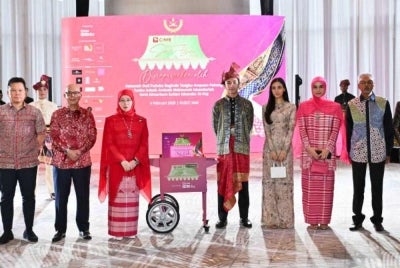TVET in Malaysia: Bridging industry demands with economic growth
Shifting trends: SPM graduates opt for e-hailing, p-hailing jobs

SHAH ALAM - Technical and Vocational Education and Training (TVET) is back in the spotlight, with the Deputy Prime Minister Datuk Seri Ahmad Zahid Hamidi proposing a minimum salary of over RM4,000 for graduates.
But what exactly is TVET? TVET is an educational and training process with a job-oriented approach, placing a significant emphasis on industry practice. Its goal is to produce a competent workforce in specific fields.
The introduction of TVET was aimed at meeting industry demands and contributing to economic growth, aligning with globalisation, the knowledge-based economy, technological advancement, and global workforce mobility.
According to Zahid, setting a salary benchmark is a step to strengthen the TVET sector in Malaysia, which has become the second choice for many young people pursuing higher education.
Traditionally, TVET has been associated with students who either drop out of academic fields or lack excellent academic qualifications.
However, given today's economic climate, there's growing confidence that TVET will once again become popular among students.
Moreover, the government, along with other stakeholders, is actively promoting awareness about TVET.
The prospect of a salary exceeding RM4,000 is undoubtedly a major draw.
In fact, last year, when Datuk Seri Mohamed Khaled Nordin assumed the role of Higher Education (KPT) Minister, he revealed that 29,000 graduates remained unemployed six months after completing their studies in 2022, based on official data from the ministry's graduate tracking system.
In 2021, 41,467 graduates, or 14.5 per cent, faced similar employment challenges.
The surge in the online service sector in Malaysia, triggered by the Covid-19 pandemic in 2020, has seen an increase in e-hailing and p-hailing workers.
Surprisingly, recent statistics from 2023 indicate that many SPM graduates are opting for e-hailing and p-hailing jobs on a part-time or full-time basis instead of corporate positions.
This field attracts young people because it offers flexibility and rewards workers based on completed tasks, without requiring full-time employment.
However, the p-hailing industry has its own challenges, with riders complaining about low wages, some earning as little as RM1 to RM3.50 per delivery.
Considering these circumstances, the offer of a salary exceeding RM4,000 may pique the interest of parents to encourage their children to pursue TVET studies.
Notably, Malaysia established two public TVET institutions in 1964, namely the Dusun Tua Youth and National Skills Institute (IKBN) and the Kuala Lumpur Industrial Training Institute (ILP).
Today, there are over 500 public TVET institutions offering a wide range of TVET programmes at all education levels.
Prime Minister Datuk Seri Anwar Ibrahim recently announced that 100,000 TVET trainees will be trained through the participation of government-linked companies (GLCs) and private companies to enhance the capacity and quality of national TVET programmes.
Anwar said that this effort involves GLCs such as Petronas, Sime Darby, MRCB, Tenaga Nasional Berhad (TNB), and Telekom Malaysia.
He viewed this as a starting point that should be expanded to ensure that children from Felda families are not left behind or marginalised.
Hence, parents or individuals interested in entering this field can be reassured that TVET programme graduates typically possess both knowledge and practical skills superior to academic program graduates.
This advantage has the potential to create more job opportunities and attract employers to hire TVET graduates.
Download Sinar Daily application.Click Here!














